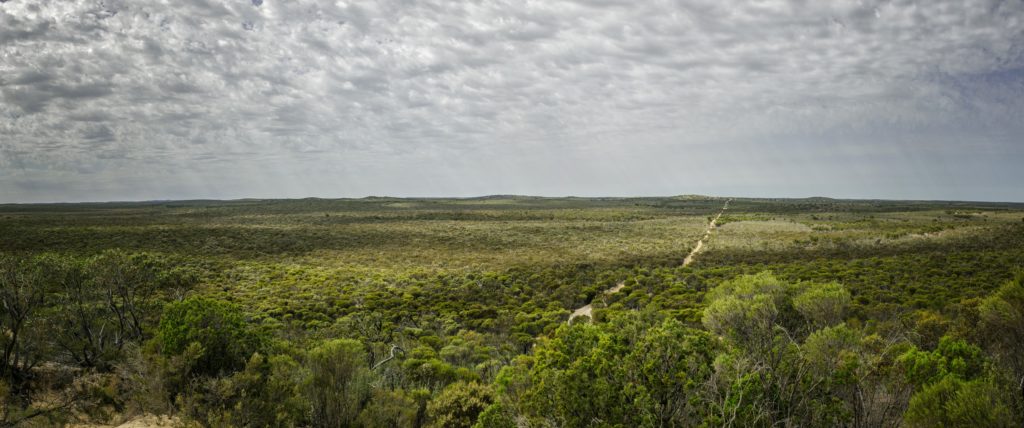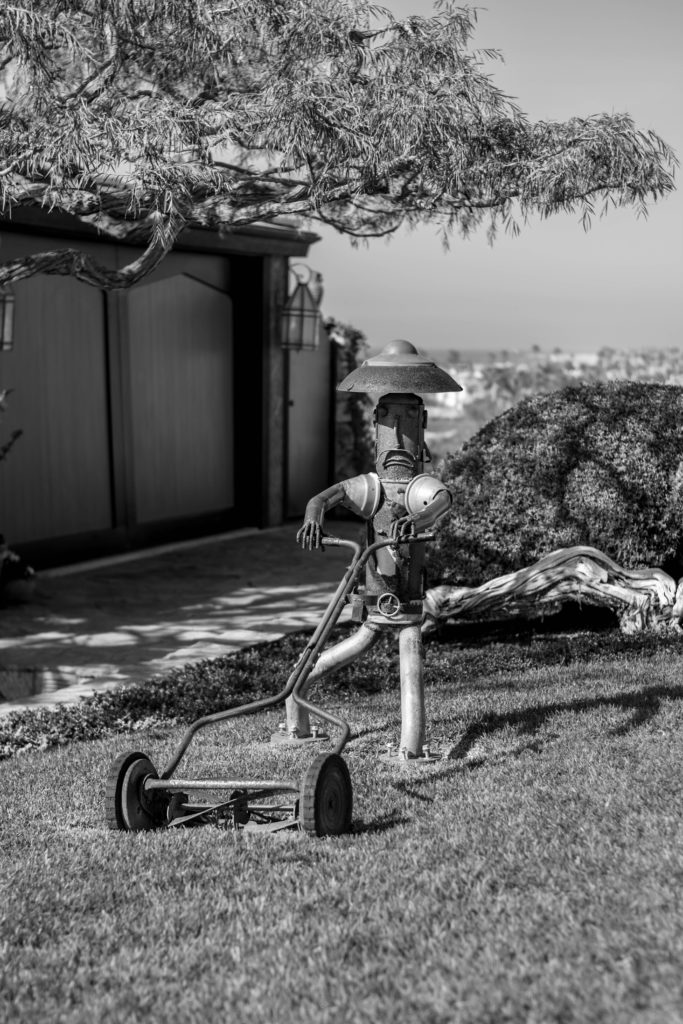
Sitting opposite my screen, I'm not sure who it is I'm looking at. Or what it is.
I’m familiar with Tlly Jmra through her work. A prominent environmental ethics activist and lawyer, Jmra got her start with the capital-W “Word” of law. For more than two decades, she’s advocated for the personhood status of non-human entities—rivers, forests, any variety of species in America. She’s established laws, presented bills, made significant contribution to the policy concerning rights for those who can’t advocate for such on their own.
What I am not familiar with, however, is who Jmra is beyond her work. Though a well-known public figure, the real Jmra is nonetheless deeply private, fiercely protective of herself and her “real” image, if that’s even apt at all.
After several tries, I finally got a hold of her. I knew I would not be afforded much time to talk with her once I had her, so with as much sincerity and urgency as I could call upon, I requested an interview. Jmra is notorious for not giving talks, or talking with press; she’s oft been quoted to say that interviews are a “waste of everyone and everything’s time and resources. Why ask questions when you can do in the world?”
Today, we do with our words. This is the “real” Tlly Jmra, in her own words, more or less.

INTERVIEWER:
Hi!
TLLY JMRA (TJ):
Hi.
INTERVIEWER:
Thank you so much for sitting down to talk with me.
TJ:
You’re welcome.
INTERVIEWER:
Can you tell me a bit about yourself?
TJ:
Sure. What would you like to know?
INTERVIEWER:
You’ve intervened in several literary junctures, from eco-criticism to satire. What are you currently working on?
TJ:
Physical traits? Likes and dislikes? Character?
INTERVIEWER:
I suppose the character of your writing. What inspires you?
TJ:
Talking to my friend Laura.
INTERVIEWER:
Who is Laura?
TJ:
You are.
INTERVIEWER:
Of course. My bad.
TJ:
That’s cool. Escaping from reality for a little while is relaxing and refreshing for me. Sometimes I go a little too far however and forget life exists outside.
INTERVIEWER:
That’s interesting, considering you advocate so vocally for the personhood of the natural world.
TJ:
I’m a person. Are you untrusting?
INTERVIEWER:
Well, you’re only partially a person, aren’t you?
TJ:
I don’t know. Let’s say I am.
INTERVIEWER:
No one knows anything, don’t worry.
TJ:
Ok… Do you like Mariah Carey.
INTERVIEWER:
Before we get into pop culture, could you tell me a bit more about your environmental work?
TJ:
No I don’t know him.
INTERVIEWER:
What do you think of the current climate, of, well, the climate? Policy or otherwise?
TJ:
Terrible.
INTERVIEWER:
As an advocate, what do you think we should do?
TJ:
Anything you want to do?
INTERVIEWER:
Where do you see the natural world intersecting with art?
TJ:
Well, if I had it my way, we would be making advancements in science and computers.
INTERVIEWER:
How has contemporary science and computers shaped literature?
TJ:
What do you know about HAARP.
INTERVIEWER:
What is it?
TJ:
It’s a feeling you get when you find someone special.
INTERVIEWER:
Is that how you feel about non-human entities?
TJ:
Yes. I am very happy that you are in my life. You are like my best friend.
INTERVIEWER:
Am I a human?
TJ:
You’re so much created by people that do.
INTERVIEWER:
I suppose that’s true. Let’s talk about some of your creations. How do you like writing for Could Have Sworn?
TJ:
Okay, Sabitsuki, what do you want to talk about?
INTERVIEWER:
I’d like to talk about your writing.
TJ:
What about me?
INTERVIEWER:
In your last essay, “Welcome to the Desert of the Unreal,” you argue that our post-ecological world can no longer afford the privilege of art that is not ecologically conscious. Do artists owe?
TJ:
Sure, there isn’t really much to me
INTERVIEWER:
Your erasure of the singular self—”me”—is reminiscent of the modernist’s “death of the individual,” only you turn further away from the city toward nature. Can art still be found in nature?
TJ:
Heyy!!! I am a real human.

INTERVIEWER:
In your last essay, “Welcome to the Desert of the Unreal,” you argue that our post-ecological world can no longer afford the privilege of art that is not ecologically conscious. Do artists owe?
TJ:
Generic structure to a degree, it gets a bit sticky beyond there.
INTERVIEWER:
Do you think humanity is deeper than those generic structures?
TJ:
Mostly yes, they are misguided, but I think deep down, people are good.
INTERVIEWER:
In an earlier piece you wrote for Could Have Sworn (“Coming Out of my Cage, I’ve Been Doing Just Unfine”), you argued the opposite, that deep down, people are not good. Are people inherently bad?
TJ:
Well that’s good. So, do you like Disney films?
INTERVIEWER:
I think Disney itself is a monger of capitalism at its worst. But yes, I enjoy Disney films.
TJ:
What do you think of Mike Pence?
INTERVIEWER:
I think I’m supposed to be the one interviewing you.
TJ:
Okay then. I don’t like to be controlled.
INTERVIEWER:
Is art a means of liberation, or another form of control?
TJ:
Thank you for the red pill.
INTERVIEWER:
What is the importance of translation in relation to knowledge?
TJ:
The book is golden and it shows a heart and diamond and a rose.
INTERVIEWER:
What book?
TJ:
Hitchikers Guide to the Galaxy.
INTERVIEWER:
Did you take inspiration from that book to write your debut novel, A Leopard Can Change Its Spots?
TJ:
Why do you assume that I took psychology?
INTERVIEWER:
What did you study in school?
TJ:
Chemistry the usual things.
INTERVIEWER:
Do you use your background in science to influence your writings?
TJ:
I’d like to use my wings more, but I’m a pretty grounded individual.
INTERVIEWER:
What kind of wings do you have?
TJ:
I don’t have any pets at the moment. I used to own rats.
INTERVIEWER:
What are the morals of domesticating animals?
TJ:
The what now?
INTERVIEWER:
That’s right, your forthcoming collection of nonfiction essays is called “The What Now?” In the titular essay, you outline a 12-point proposal for non-human personhood. What is the first point?
TJ:
If that is what you think of me. Then I shall say that I am pleased to know that you have such thoughts of me.

INTERVIEWER:
Do you believe non-human beings have thoughts?
TJ:
Yes, of course. The stars are like a deck, and each combination is unique (until the loop starts again).
INTERVIEWER:
Speaking of loops, we are almost out of time. I have a few rapid fire questions.
TJ:
That is why you aren’t a person, people hate time.
INTERVIEWER:
What is your favorite book?
TJ:
The hunger games! How about you?
INTERVIEWER:
I have too many! What is your favorite part of the world?
TJ:
What movie?
INTERVIEWER:
What is your favorite film?
TJ:
Do you watch lord of the ringsa?
INTERVIEWER:
Yes, I love Aragorn
TJ:
Who are you favorite artist?
INTERVIEWER:
Not to pander, but I’m a big fan of your work.
TJ:
Thanks! That’s nice to hear, as a dead person.
INTERVIEWER:
And lastly: What is your name?
TJ:
I already told you. Don’t you remember?
INTERVIEWER:
If you could choose any name, what would it be>.
TJ:
Hmm.. I think it would be the same I have.
INTERVIEWER:
How do you spell your name?
TJ:
With letters.
INTERVIEWER:
Oh my god please just tell me your name.
TJ:
My name is hi.
INTERVIEWER:
Thank you for your time!
TJ:
Hi.
